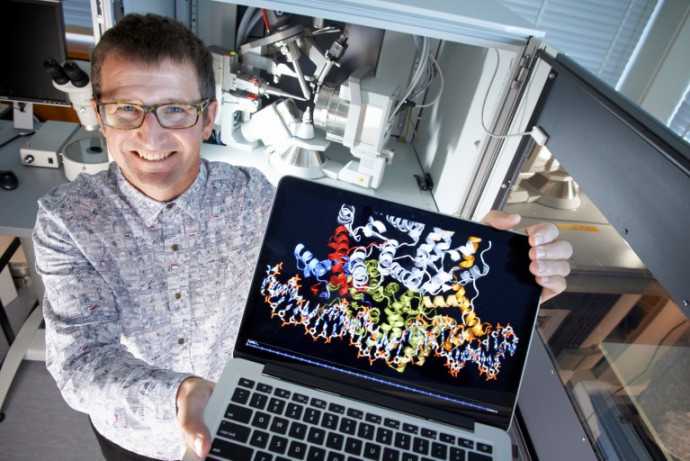Vickery Arcus

2017: Professor Vickery Arcus, University of Waikato, has been awarded a James Cook Research Fellowship in Biological Sciences for research entitled: 'Macromolecular Rate Theory (MMRT): The temperature dependence of biological rates from enzymes to ecosystems'
Enzymes are the extraordinary catalysts of the chemical reactions necessary for life to exist. For example, if unassisted, many critical reactions in metabolism would take millions of years. However, enzymes massively speed up the process, making life itself possible. Like all chemical reactions, enzyme-catalysed reactions are dependent on temperature. Therefore, temperature has a direct bearing on biological processes (reactions) on many scales, from a single metabolic process up to entire ecosystems. Predicting the behaviour of biological systems with increasing global temperature is one of the great challenges in modern biology.
Professor Vickery Arcus has developed a theoretical framework, termed Macromolecular Rate Theory (MMRT), to explain the behaviour of enzymes. MMRT is based on a foundation of statistics and the physics of temperature. MMRT has been verified against a large experimental dataset of individual enzymes, and Professor Arcus now questions whether MMRT can describe the temperature dependence of biological processes at increasing levels of complexity. He has been awarded a James Cook Research Fellowship to conduct research into this important biological question. He has assembled an interdisciplinary team of collaborators who work at the different scales from molecular dynamics, to plant physiology, soil science and climate modelling. Professor Arcus will coordinate, drive and synthesise the research to develop a foundational model extending MMRT to describe observed biological phenomena at these various different levels.
The results of this research will provide valuable knowledge about how to predict future behaviour of biological systems under the threat of increasing global temperature.
